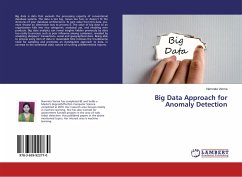Big data is data that exceeds the processing capacity of conventional database systems. The data is too big, moves too fast, or doesn't fit the strictures of your database architectures. To gain value from this data, you must choose an alternative way to process it. The value of big data to an organization falls into two categories: analytical use, and enabling new products. Big data analytics can reveal insights hidden previously by data too costly to process, such as peer influence among customers, revealed by analyzing shoppers' transactions, social and geographical data. Being able to process every item of data in reasonable time removes the troublesome need for sampling and promotes an investigative approach to data, in contrast to the somewhat static nature of running predetermined reports.
Bitte wählen Sie Ihr Anliegen aus.
Rechnungen
Retourenschein anfordern
Bestellstatus
Storno








